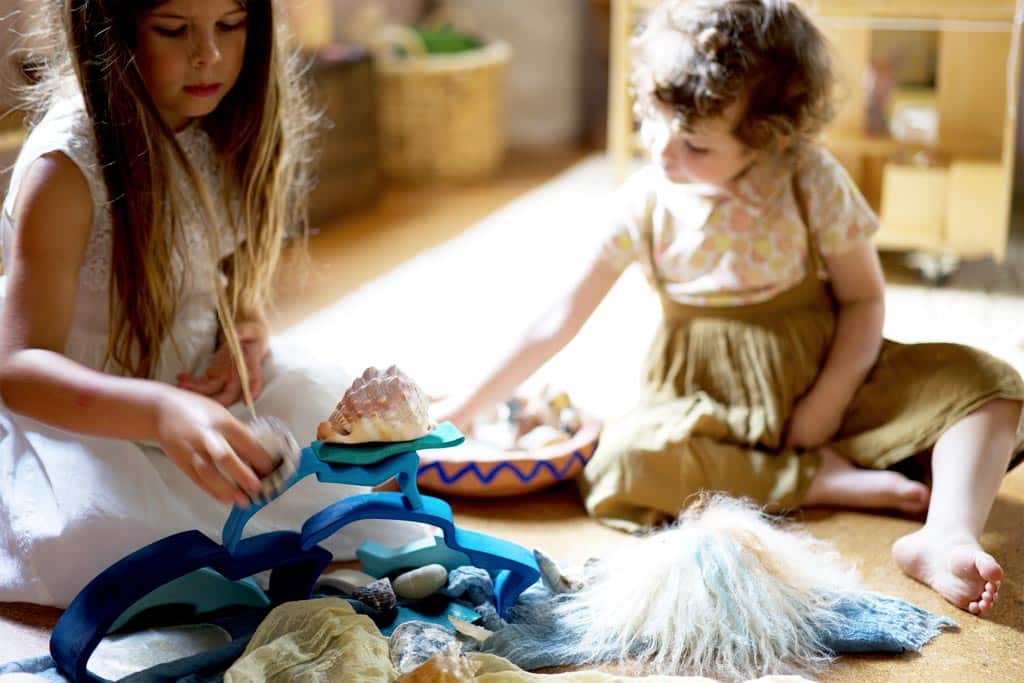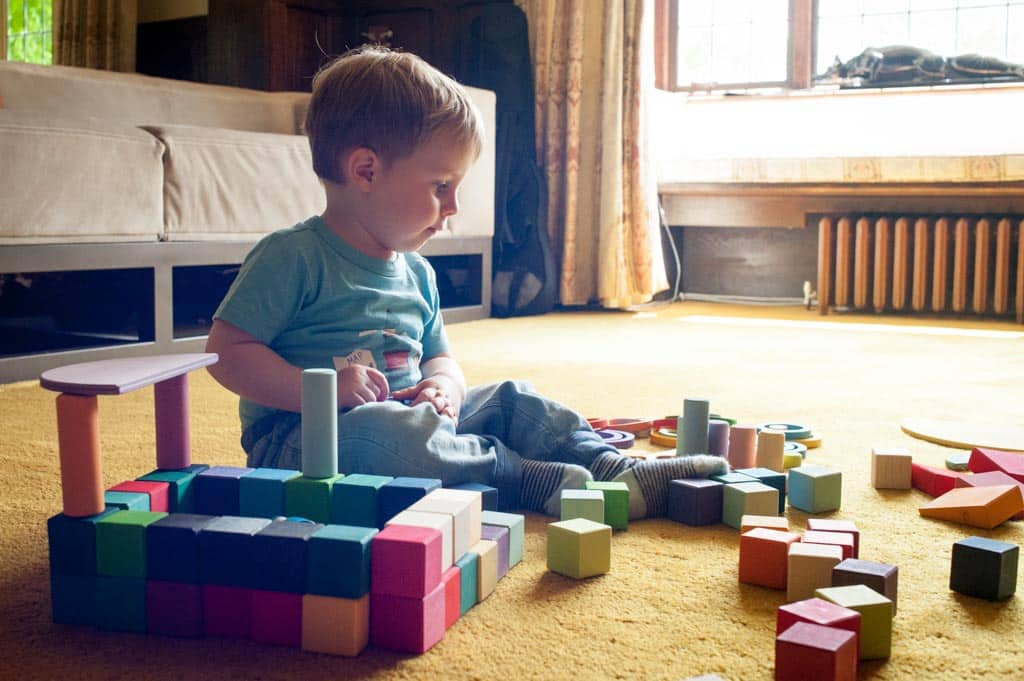I’m watching my 3 year old daughter build a tower out of blocks. She’s totally absorbed in the repetitive process of selecting, stacking and balancing them to make the tallest structure she can. With no interruptions she narrates to herself as she plays within her own little bubble.
I often wonder how this scene might be different if she had siblings. A baby suddenly reaching out to topple the tower, a toddler watching in fascination and then stealing some of the bricks to make their own. There might be greater conflict and more arguments but in my imagination there would also be cooperation, learning to share and experiencing the joy of playing alongside each other.
In our new socially distanced world I’m more aware than ever before of the amount of time my daughter spends without the company of other children. The number of single child families is increasing and so more and more parents find themselves in a similar situation. But are only children really missing out in their experience of play? Could they actually benefit from the freedom of being without siblings? And is there anything we as parents can do to develop the skills they would gain from playing with a brother or sister?
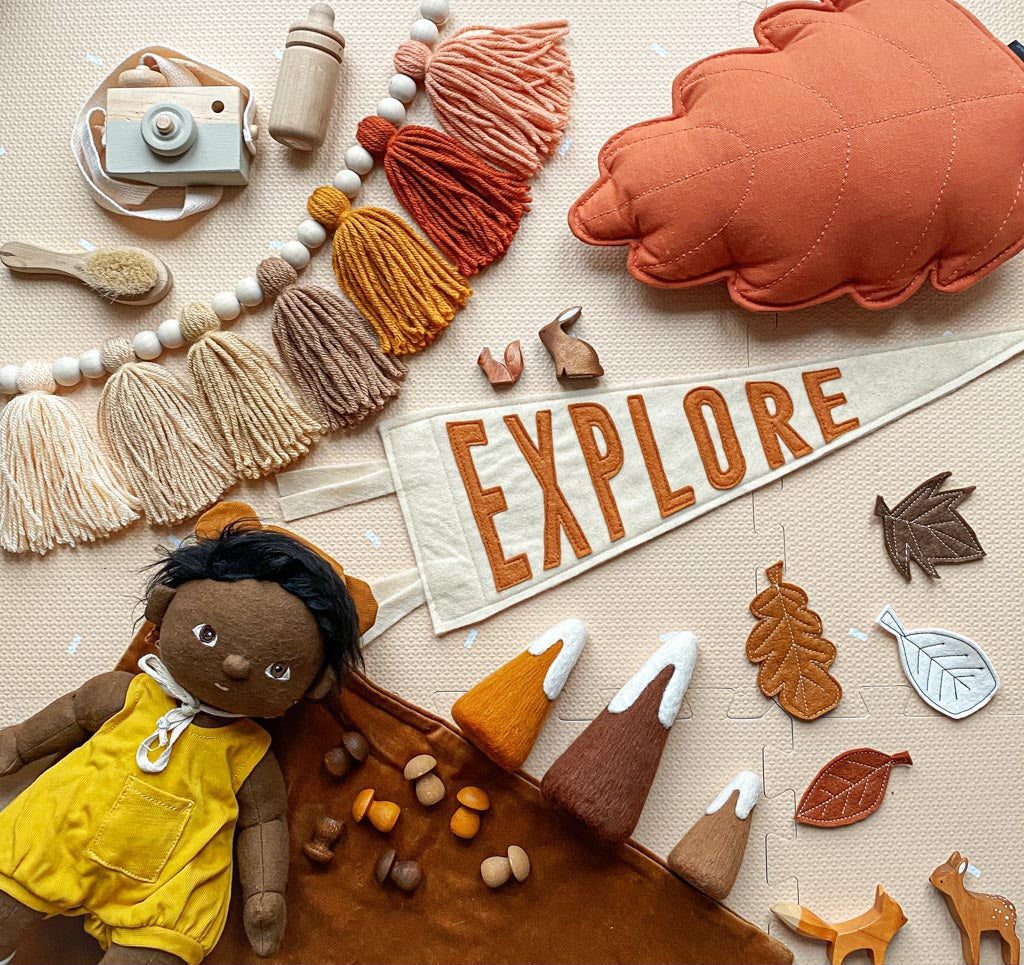
The disease of the only child?
More than a century ago, pioneering American psychologist Granville Stanley Hall stated that being an only child was “a disease in itself”. This perception of only children being somehow disadvantaged, lonely and strange was hard to shift. Thankfully, numerous modern studies have since proven him wrong.
In the 1980s Toni Falbo, Professor of Educational Psychology at the University of Texas, carried out a review of 115 studies on only children. She found that across all developmental outcomes there was no difference between only children, firstborns and people from small families. In fact only children scored higher in terms of their character and were more likely to have a positive relationship with their parents than any other family size.
While this is reassuring to know, we can’t deny that the experience of play as an only child is very different without siblings around. Brothers and sisters are often a child’s first play partners. Older siblings can test out their leadership skills and learn to resolve conflicts by playing with their younger siblings. They often act as translators in play, trying to interpret their siblings’ early attempts at language development and so encouraging them to practice new sounds to make themselves understood.
Younger siblings in turn are exposed to different kinds of play at a younger age. Imitating their brothers and sisters gives them a better imagination, helps them develop theory of mind (or the ability to put themselves in someone else’s shoes) and even encourages improved motor and coordination skills such as learning to walk at a younger age.
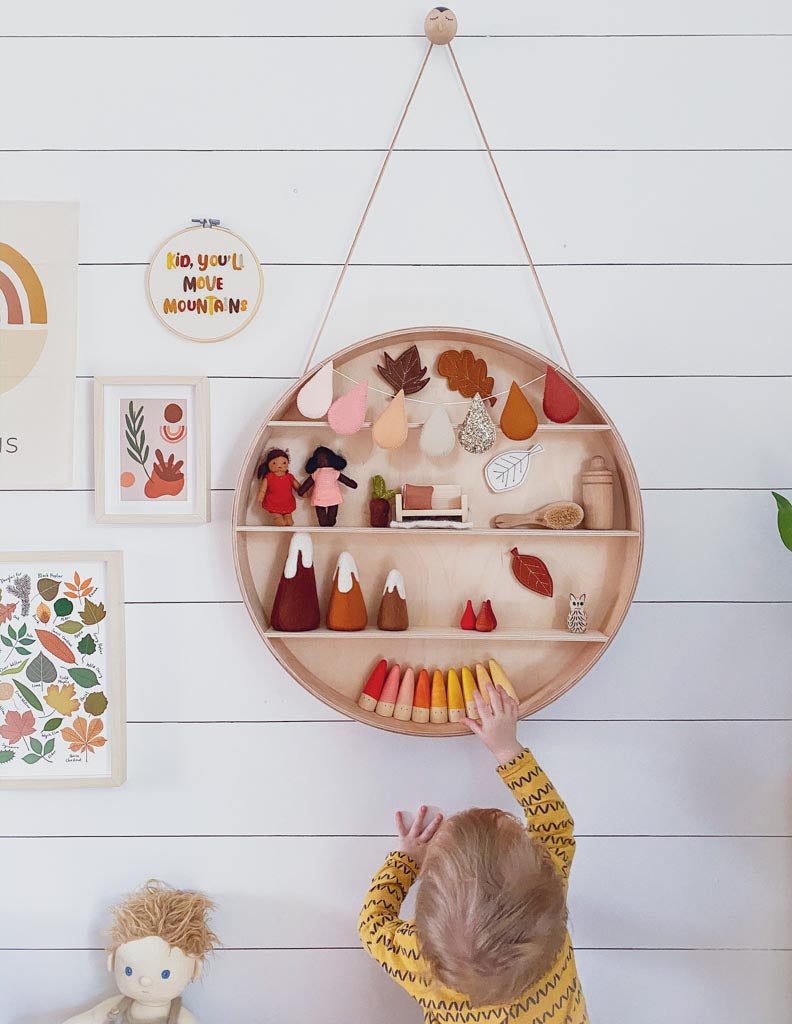
Freedom to play alone
And yet surely there is a lot to gain from having the freedom to play by yourself, whenever and however you want. Only children don’t need to compete for attention, to share toys or to worry about the playdough person they just created being squashed beyond recognition by another little hand.
My daughter has me and my husband to scaffold and help with her play, and she has plenty of willing playmates and teachers in the form of grandparents, aunties, uncles and even our springer spaniel. We’re not limited by the relentless feeding, changing and sleeping regime of a smaller child or the daily school runs of an older sibling. Instead we can create experiences together. I try to follow her interests and give her the space and resources to figure things out in her own way.
But still I worry that she is missing out on the irreplaceable experience of being and having a sibling. I cannot imagine my own childhood without my brother and sister. Pretending to host our own radio shows and recording them onto cassettes, having water fights and making mud pie cafes in the garden, hiding out in dens in the bunk beds – would I have made similar memories by myself?
Maybe not, but there are ways that we can support an only child to learn some of the skills that socialising with a brother or sister might provide.
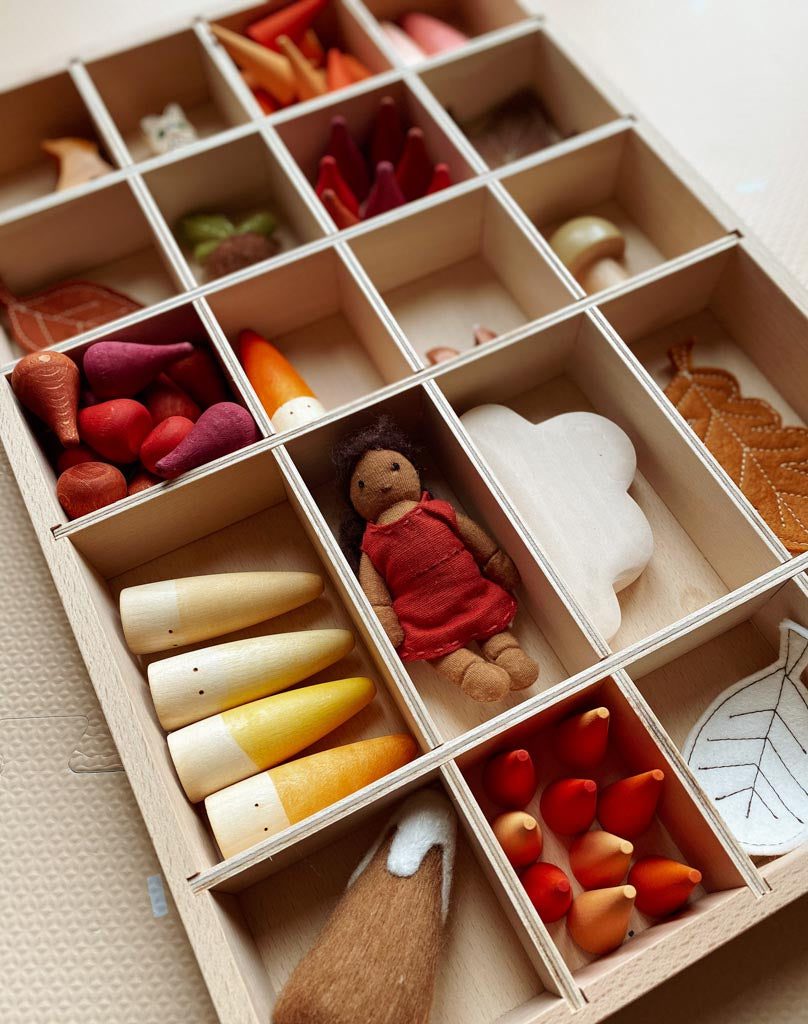
6 ways to support an only child to play like a sibling
- Encourage socialising and play opportunities with children their own age. Structured settings like baby classes, playgroups and nursery go some way to bridging the gap, and playing with friends in a home environment or perhaps on holiday gets closer to recreating the close contact that a child would have with a sibling. It’s learning about the everyday give and take that comes from negotiating, sharing and interacting with other children.
- Model positive behaviour and demonstrate by example how to share, compromise and show consideration for others. This could be through everyday things like learning how to react when waiting for a turn, losing a game, or joining a group.
- Remember that you are their greatest teacher. Take time to give them your full attention, watch how they play and help them to build on their experience by asking questions or providing resources to support them.
- Involve your child in real activities and chores. Kneading bread dough, adding pizza toppings, helping to put clothes away are all examples of how they can help and feel included in what you are doing while playing at being an adult.
- Encourage chaos, laughter and not taking things too seriously. Only children sometimes get used to a more ordered, calm day to day routine when only living with adults. For example, our dog provides plenty of chaos in knocking over toys, barking at unexpected noises and also teaches my daughter to care for another living creature.
- Build a connection with nature. Bug hunts, planting seeds, looking for signs of the changing seasons are all opportunities for immersing themselves in natural play and helping your child to understand that the world is bigger than them.
Children naturally make the best playmates. When sibling relationships are positive and they get on, having siblings is having play partners for life. It’s a unique blend of closeness and frustration which teaches children about relationships from the earliest age. Only children might not have this, but as their parents we can teach them many of the skills they’d get from siblings just by paying attention, being there for them and providing them with a range of different play experiences both at home and in the world beyond.
References
Bhatt Patel, R. (2020) Social distancing with an only child: How parents can help. The Washington Post, Online. https://www.washingtonpost.com/lifestyle/2020/04/20/parenting-only-child-coronavirus-quarantine/
Falbo, T. and Polit, D. (1986) Quantitative Review of the Only Child Literature. Research Evidence and Theory Development. Psychological Bulletin 100(2):176-189
Gray, P. (2014) Playing with children: Should you, and if so, how? Psychology Today, Online. https://www.psychologytoday.com/gb/blog/freedom-learn/201409/playing-children-should-you-and-if-so-how
Gummer, A. ‘8 tips to encourage play between siblings’. The genius of play, Online https://thegeniusofplay.org/genius/expert-advice/articles/8-tips-to-encourage-play-between-siblings.aspx#.X5ChnNBKg2w
Krisch, J (2019) Brother, Sister, Rival, Friend: How Siblings Shape One Another’s Lives. Fatherly https://www.fatherly.com/health-science/siblings-how-having-a-brother-sister-changes-kids/
Onion, R. (2019) Playtime is Over! Slate.com https://slate.com/human-interest/2019/03/parent-child-pretend-play-expectations.html
Saner, E. (2018) ‘The truth about only children: are they more insular and confident?’https://www.theguardian.com/lifeandstyle/2018/may/31/truth-about-only-children-insular-confident-worry



